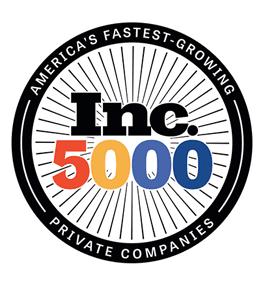Which eCommerce Platform is Best for SEO?

- Shopify
- WooCommerce
- BigCommerce
- Magento
With so many eCommerce platforms out there, how do you choose the one that will boost your visibility? Each platform comes with its own bundle of strengths and weaknesses—especially when it comes to eCommerce SEO capabilities. From custom URLs and the ability to optimize title tags and meta descriptions, to being mobile friendly and analytics and sitemap integration, there are many elements of an eCommerce platform that affect SEO.
Key Factors to Consider for eCommerce SEO
Before diving into platform comparisons, let’s break down the most crucial SEO features to look for in an eCommerce solution:
- Customizable URL Structures – Your platform should allow for clean, keyword-rich URLs that help with indexing and ranking.
- Titles, Descriptions, On-Page Optimizations – Your platform should allow you to be able to easily edit page title tags, descriptions, and on-page elements so they are optimized.
- Meta Tags & Descriptions – Ability to easily edit title tags, meta descriptions, and header tags for each product and page.
- Site Speed & Performance – Faster load times improve user experience and search rankings.
- Mobile Optimization – Since Google prioritizes mobile-first indexing, responsive design is a must.
- SEO Plugin Support – The availability of SEO plugins and integrations (like Yoast SEO for WordPress) can streamline optimization efforts.
- Structured Data Support – Helps search engines better understand and display product information.
- Sitemap & Indexing Control – Easy sitemap generation and integration with Google Search Console.
So, whether you’re starting a new venture or looking to revamp an existing store, understanding which eCommerce platform gives you the best tools for SEO is crucial. Let’s explore some of the leading options and see how they stack up in the battle for online visibility.
Shopify is widely recognized as one of the best eCommerce platforms for SEO due to its robust tools such as customizable URL structures, built-in blogging capabilities, and fast loading times that enhance user engagement. Additionally, platforms like Wix eCommerce, BigCommerce, and Magento also offer strong SEO features, making them viable alternatives depending on your specific business needs.
Top eCommerce Platforms for SEO
Among the top eCommerce platforms, two standouts are Shopify and WooCommerce. Shopify is widely known for its simplicity and user-friendly setup. Its built-in SEO features simplify the process for those who may not be familiar with web development. For example, Shopify allows easy customization of meta descriptions and titles—key factors that enhance visibility on search engines. Additionally, the platform supports structured data that helps search engines better understand your product offerings.
However, some users have noted that while Shopify offers robust SEO tools, it comes at a higher price point compared to some other platforms, particularly when more advanced features are required on lower-tier plans.
On the other hand, we have WooCommerce, which stands out for its flexibility. Built on WordPress, this platform leverages powerful plugins like Yoast SEO. With WooCommerce, you can fine-tune every aspect of your site’s SEO, from customizable URLs to in-depth analytics. This level of control makes it an attractive choice for those who value personalization over convenience. The trade-off here is that users must be comfortable with a bit more complexity as they set up their stores.
Next, let’s look at BigCommerce, a platform touted for its comprehensive built-in SEO features, which are particularly beneficial for larger enterprises aiming for extensive reach.
BigCommerce offers businesses a suite of pre-built features that impact SEO positively right out of the box. Its emphasis on page speed and mobile optimization means that stores built on this platform typically perform well in search rankings without needing much intervention.
BigCommerce also supports editable URL structures and 301 redirects easily, which are crucial elements in maintaining a healthy SEO profile during site updates or migrations. It’s integrated with a number of payment gateways that simplify the payment process. And the platform simplifies these technical aspects, allowing business owners to focus more on selling rather than learning complicated coding languages.
Finally, we examine Magento, which appeals to those looking for high levels of customization in their SEO strategies.
Magento is renowned for its considerable flexibility and extensive customization options. Businesses can implement advanced SEO controls that allow intricate modifications to be made according to specific marketing strategies. Its powerful content management system lets users create detailed content which improves organic traffic and enhances user engagement. While Magento offers great capabilities, it requires a more significant investment in terms of both time and expertise to set up effectively; it’s ideal for established businesses with dedicated resources.
Here’s a recap summarizing these key e-commerce platforms alongside their primary strengths in regard to SEO: With this understanding of each platform’s strengths, it’s important to consider how these attributes align with your specific e-commerce needs as we explore the rich set of SEO features offered by one of these platforms.

Shopify SEO Key Features
Shopify offers a range of built-in SEO tools designed specifically to elevate your website’s visibility in search engine results. These features empower users, both seasoned developers and casual store owners alike, to optimize their websites without needing extensive technical knowledge. Understanding how these essential tools function can significantly impact your online presence, drawing more visitors to your store.
Shopify SEO Pros:
- User-Friendly – No technical expertise required; easy setup and management.
- SEO-Friendly URLs – Generates clean and structured URLs automatically.
- Built-in Blogging Platform – A great way to create content that improves organic traffic.
- SSL Certificates Included – Enhances security and SEO rankings.
- Fast Loading Speeds – Uses a content delivery network (CDN) for better performance.
Shopify SEO Cons:
- Limited URL Customization – Shopify forces certain structures, such as adding “/products/” to product URLs.
- App Reliance – Advanced SEO features often require third-party apps (some paid).
Best For: Business owners looking for an all-in-one, hassle-free platform with solid SEO capabilities.
SEO-friendly URLs
Customizable URL Structures: One of the standout features of Shopify is its ability to create SEO-friendly URLs. This means you’re able to incorporate relevant keywords directly into the URL for better indexing by search engines and improved click-through rates from potential customers. For instance, instead of having a generic URL like www.yoursite.com/products/item123, you could customize it to www.yoursite.com/products/leather-wallet, which not only ranks better but also informs visitors about the product before they even click on the link.
Built-in Blogging Platform
Content is king when it comes to SEO, and Shopify provides a built-in blogging platform that allows store owners to regularly publish relevant and engaging content. This consistent production of fresh content helps improve search rankings by signaling to search engines that your site is active and relevant. Additionally, quality blog posts enhance customer engagement and contribute to brand authority, establishing your site as a go-to resource in your niche.
SSL Certificates Included
Security has become a vital component of online trustworthiness. Shopify automatically includes SSL certificates with every store, ensuring that data transmitted through your site is encrypted. Search engines, particularly Google, favor secure sites—meaning that having an SSL certificate isn’t just good practice but also boosts your SEO ranking.
Fast Loading Times
User experience is pivotal in retaining potential customers, and one crucial element of this is site speed. Thanks to Shopify’s Content Delivery Network (CDN), your pages load quickly regardless of geographical location. Fast-loading pages lead to lower bounce rates and higher customer satisfaction, contributing positively to your site’s overall SEO performance.
Plugins
The real strength of Shopify lies in its seamless integration of various plugins alongside its user-friendly SEO dashboard, making it accessible for businesses of all sizes. With this integration, you can enhance your site’s performance further by utilizing additional tools designed specifically for tracking keywords, optimizing images, or improving link-building efforts.
By understanding these foundational features and how they can be utilized effectively, you can start leveraging Shopify’s robust SEO capabilities to improve your e-commerce site’s visibility and traffic flow. This sets the stage for examining the unique strengths and weaknesses found within another popular platform.

WooCommerce SEO Strengths and Weaknesses
WooCommerce, as a popular WordPress plugin, provides potent SEO capabilities that can significantly enhance your online store’s visibility. However, users must possess a bit of technical know-how to tap into those strengths fully.
WooCommerce SEO Pros:
- Highly Customizable – Full control over URL structure, meta tags, and site speed.
- SEO Plugins Available – Integrates seamlessly with Yoast SEO for advanced optimization.
- Content Marketing Powerhouse – Since it’s built on WordPress, blogging and content SEO are top-notch.
- No Platform Fees – Unlike Shopify, there are no monthly fees aside from hosting.
WooCommerce SEO Cons:
- Steeper Learning Curve – Requires WordPress knowledge and some technical skill.
- Hosting & Maintenance Required – Unlike Shopify, you must manage hosting, updates, and security yourself.
- Plugin Dependency – Too many plugins may drastically slow down your site
Best For: Businesses that want complete control over their SEO strategy and are comfortable with WordPress.
Customizability
One notable strength of WooCommerce is its customizability. This flexibility allows you to craft the eCommerce site structure precisely as you envision it. Whether you’re running a boutique or a vast online retailer, WooCommerce enables you to tailor every detail, from product pages to checkout processes. This adaptability not only enhances the user experience but also supports your unique branding efforts.
Plugins
Another significant advantage is the wide range of plugins available. For example, plugins like Yoast SEO serve as valuable companions by offering insights and automated features tailored for optimizing an eCommerce site. You can easily implement best practices such as using keywords strategically in your page titles or meta descriptions without having to dig deep into the technical side of things. These plugins guide you through each step, making it easier even for those less experienced in web development.
While customization and plugin support are essential advantages, it’s crucial to recognize some weaknesses that WooCommerce carries.
Plugin Dependency
One key weakness is its dependency on plugins. While plugins can enhance functionality and extend capabilities, an over-reliance on them can backfire; too many plugins may drastically slow down your site. A sluggish website not only frustrates users but also negatively impacts your search engine rankings—after all, speed is a ranking factor that search engines consider vital.
Installation Process
The installation process for WooCommerce requires a steep learning curve and poses a challenge for users lacking technical expertise. Unlike more straightforward platforms, setting up WooCommerce requires configuring various settings and choosing suitable themes—all while ensuring that these align well with your SEO strategies. This complexity can discourage new users who may find themselves lost amid countless options without proper guidance.

BigCommerce SEO Analysis
BigCommerce provides a suite of features designed specifically to help businesses optimize their online presence. It’s a good option for large-scale businesses or businesses planning to scale in the future. One of the standout aspects is its advanced SEO tools, which streamline processes typically cumbersome for website owners.
BigCommerce SEO Pros:
- Clean URL Structures – Easily customizable URLs without extra folders.
- Mobile-Optimized Themes – Ensures your site performs well on all devices.
- Built-in SEO Features like Automatic Sitemaps – Automatic sitemap generation and meta tag editing.
- Fast Load Speeds – Optimized for performance without requiring plugins.
BigCommerce SEO Cons:
- Higher Price Tiers – More advanced features require pricier plans.
- Limited Design Flexibility – Customizing themes requires coding knowledge.
Best For: Mid-sized businesses planning to scale without worrying about third-party SEO apps.
Automatic Sitemaps
A valuable tool in BigCommerce’s arsenal is its automatic sitemaps. By generating these sitemaps automatically, BigCommerce simplifies the process for search engines to index your site, greatly enhancing your visibility. A well-organized sitemap allows search engines to understand the structure of your site better, leading to higher rankings and improved traffic. Imagine having to manually map each page; this automated feature saves substantial time while ensuring accuracy.
Optimized Product Pages and URL Structures
Within product pages, businesses can utilize custom meta tags and SEO-friendly URLs. This means that when crafting product descriptions, you can incorporate relevant keywords naturally—essential because search engines prioritize content that aligns closely with user search queries. Additionally, descriptive, clean, and concise URLs make it easier for both users and search engines to navigate your site.
With so many features aimed at enhancing visibility, retaining visitors is just as important.
Responsive Mobile-Optimized Themes
The importance of mobile optimization cannot be overstated in today’s digital landscape; this aligns perfectly with BigCommerce’s emphasis on responsive themes. As discussed about mobile-first indexing, Google now prioritizes website performance on mobile devices. By using responsive themes, websites are not only visually appealing on smaller screens but also maintain functionality, positively contributing to user experience and boosting SEO rankings.
Ensuring your site adapts seamlessly to any device is non-negotiable for SEO.
Furthermore, the seamless integration of BigCommerce with tools like Google Analytics cannot be overlooked. This integration enables businesses to monitor their SEO performance effortlessly, offering insights into how different pages perform in search results.
Other benefits of BigCommerce include fast load speeds, the number of payment methods available, and that it doesn’t require any coding knowledge to create a new store.

Adobe Commerce (Magento) SEO Capabilities
Adobe Commerce, formerly known as Magento, is often a top choice among large enterprises and developers who want a self-hosted online store, primarily because of its extensive customization options that cater specifically to the complex needs of their businesses.
The platform’s ability to be tailored means that it can adapt well to SEO strategies that many other e-commerce platforms might struggle with. This adaptability opens the door for advanced optimization techniques, making it a powerful asset for those serious about improving their search rankings.
Magento SEO Pros:
- Advanced Customization – Full control over URLs, metadata, and structured data.
- Scalability – Handles large product catalogs and high traffic volumes.
- Rich Snippet Support – Enhances search engine listings with additional product info.
Magento SEO Cons:
- Requires Development Expertise – Not beginner-friendly; coding knowledge required.
- High Maintenance – Requires hosting, updates, and security monitoring.
Best For: Large businesses with dedicated development teams looking for complete customization.
Advanced Customization
When it comes to customizing your store for optimal SEO performance, several key features of Magento can be incredibly beneficial. For starters, its robust URL structure enables businesses to create URLs that are descriptive and easily readable; this enhances user experience and helps search engines in understanding the content better. Moreover, having control over meta tags for each product and page allows for precise optimization. Developers can ensure that the right keywords are included, which is essential for ranking well in search results. It comes with AI-powered live search and it allows you to optimize the images on the website
Schema Markup / Rich Snippet Support
Furthermore, Magento supports schema markup, allowing merchants to use rich snippets—pieces of code that provide more context about your website’s content—which can enhance visibility in search results by providing additional information like ratings, reviews, and availability. This extra detail can make your listing more attractive to users who are scrolling through search engine results pages (SERPs).
Mobile Friendly
But it doesn’t stop there. With ever-increasing mobile usage, Magento’s templates are designed to be mobile-friendly, which not only improves user experience but also aligns perfectly with Google’s mobile-first indexing approach. By offering responsive designs, you can cater to users accessing your site via smartphones or tablets, ensuring they have a seamless shopping experience.
Drawing from personal experience, many developers rave about the flexibility Magento offers for SEO optimization. However, it’s important to note that leveraging these tools requires a significant investment of time, expertise, and money. If you’re willing to put in that effort—whether through learning or hiring knowledgeable support—the payoff can be substantial in terms of boosted traffic and sales.
Performance Metrics Comparison
Evaluating the SEO capabilities of different eCommerce platforms requires a closer look at several performance metrics that can significantly impact your online visibility and success.
First and foremost, let’s talk about Page Load Time. A website’s loading speed is pivotal; it’s one of the first things users notice. Google favors faster sites in its rankings, which means a slow-loading page can be detrimental to your site’s SEO. In this regard, platforms like Shopify and BigCommerce shine, as they harness Content Delivery Networks (CDNs) that help deliver content swiftly across various geographical locations. Having a platform that prioritizes speed can enhance user experience and conversion rates dramatically.
Next up is Mobile Optimization. With an increasing number of users shopping from their phones, it’s imperative that your eCommerce platform provides a seamless mobile experience. While all major platforms offer mobile-responsive designs, some stand out for their superior execution. Magento and BigCommerce lead here with advanced mobile features that go beyond mere responsiveness, incorporating intuitive navigation and checkout processes specifically tailored for mobile users. This difference can be crucial because a significant portion of web traffic comes from mobile devices nowadays.
Moreover, it’s important to consider SEO Tool Integration as one of the deciding factors when choosing a platform. Both WooCommerce and Shopify excel in this area, providing vast libraries of plugins and tools designed to optimize your site further for search engines. However, it’s essential to recognize that maintaining these plugins requires diligence; regular updates are vital to ensure continuing performance improvements and security features.
To clarify these points visually, let’s revisit our comparative analysis: After evaluating these metrics, remember that the best choice will depend on balancing speed, mobile capability, and the ease with which you can optimize on-page SEO elements and integrate SEO tools tailored to your business goals.
Aligning these performance metrics with your unique business needs is critical when determining which eCommerce platform will ultimately serve you best in establishing a strong online presence.
Conclusion
Selecting the best eCommerce platform for SEO depends on your business goals, technical expertise, and growth expectations. For small to mid-sized businesses, Shopify and WooCommerce are the top contenders. Shopify is best for those who want a simple, all-in-one solution, while WooCommerce provides more control for businesses prioritizing content marketing and SEO customization.
BigCommerce and Adobe Commerce are contenders for best SEO eCommerce platforms for mid-size and large companies respectively. BigCommerce is good for mid-sized businesses planning to scale without worrying about third-party SEO apps. And Adobe Commerce (Magento) is good for large businesses with dedicated development teams looking for complete customization.
By aligning your platform choice with your SEO strategy, you can maximize your store’s visibility, attract more customers, and drive sustainable growth.
Need expert SEO guidance for your e-commerce business?
Contact us today to optimize your store for maximum search visibility!
















